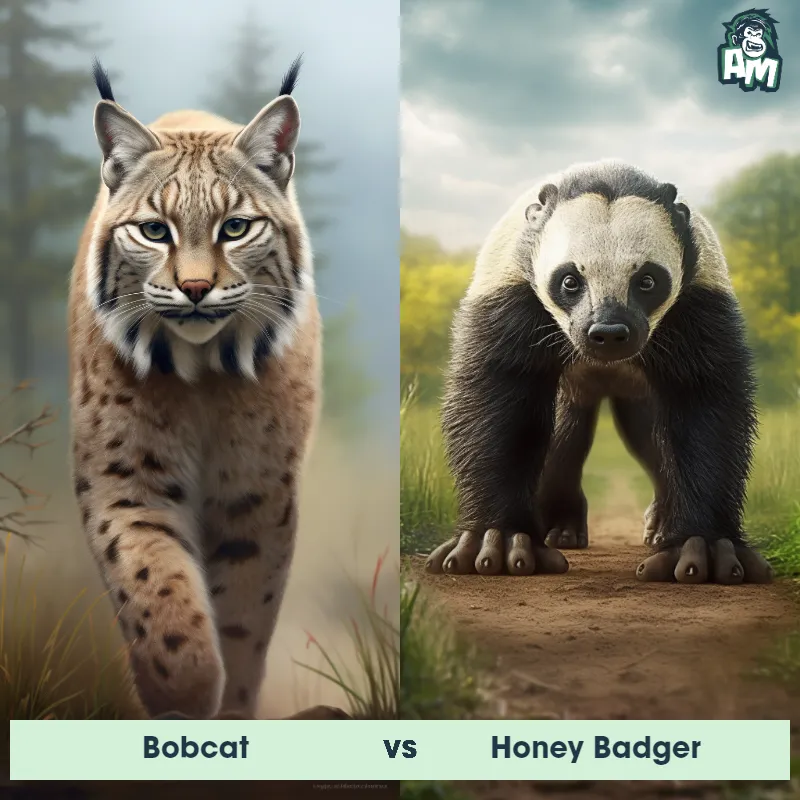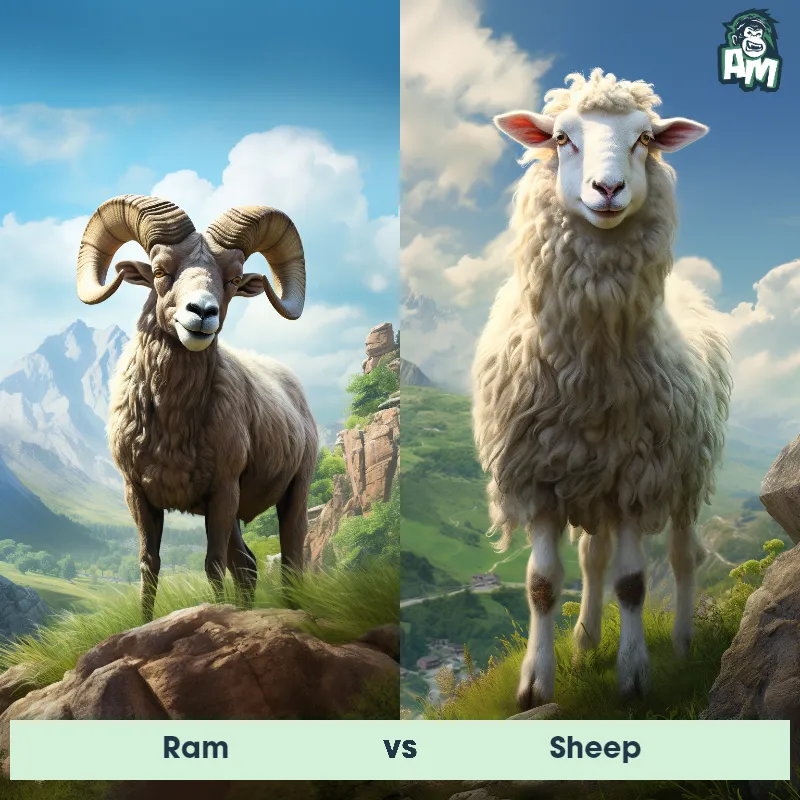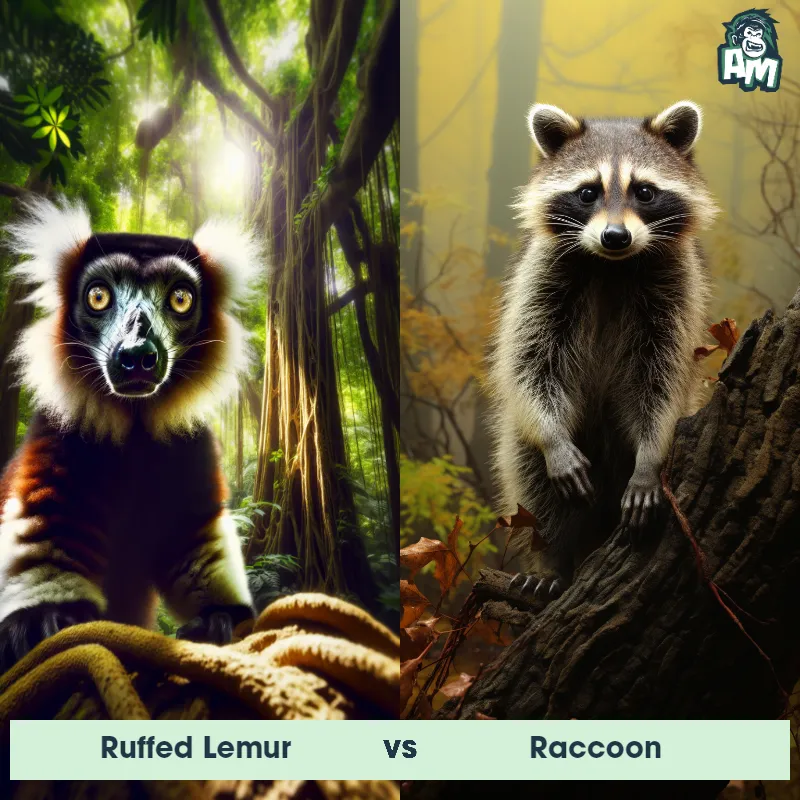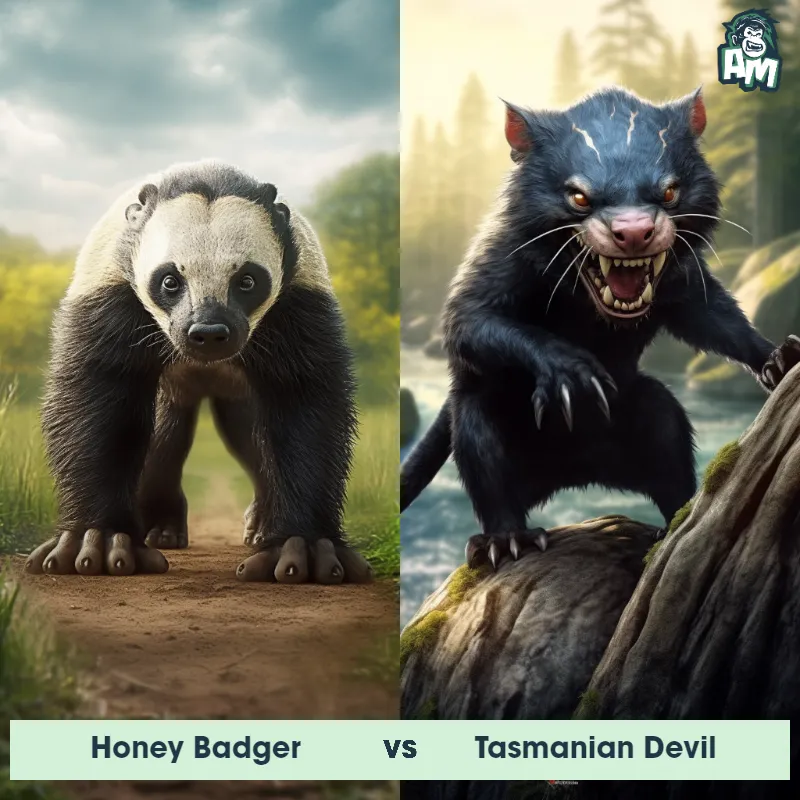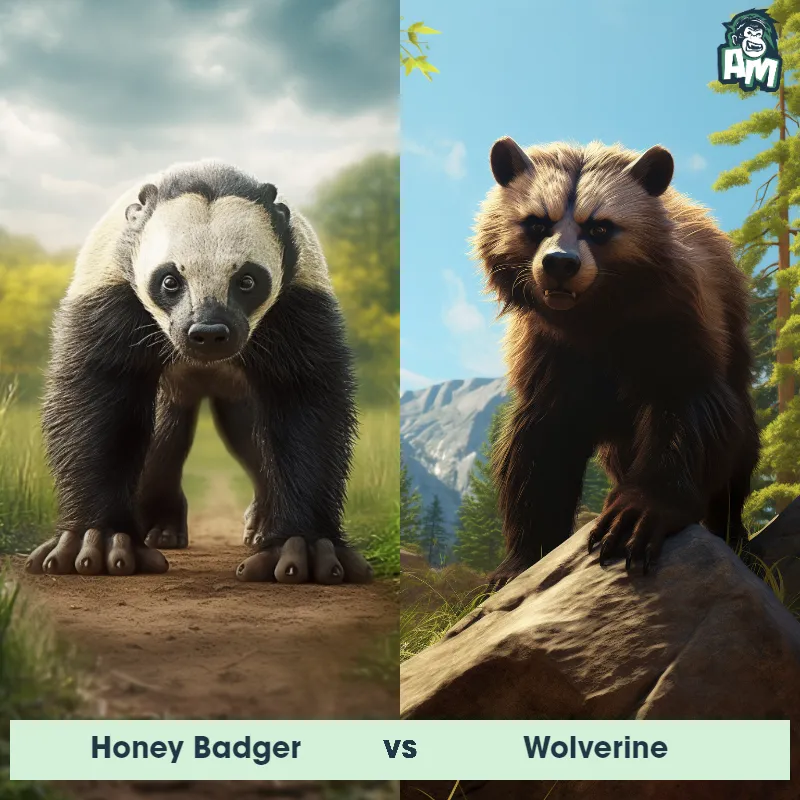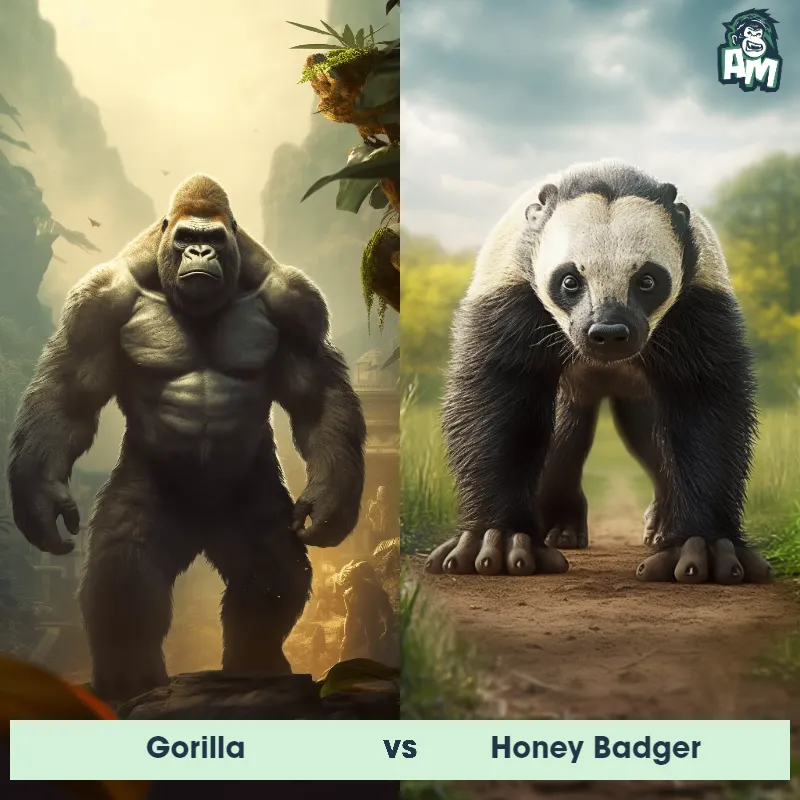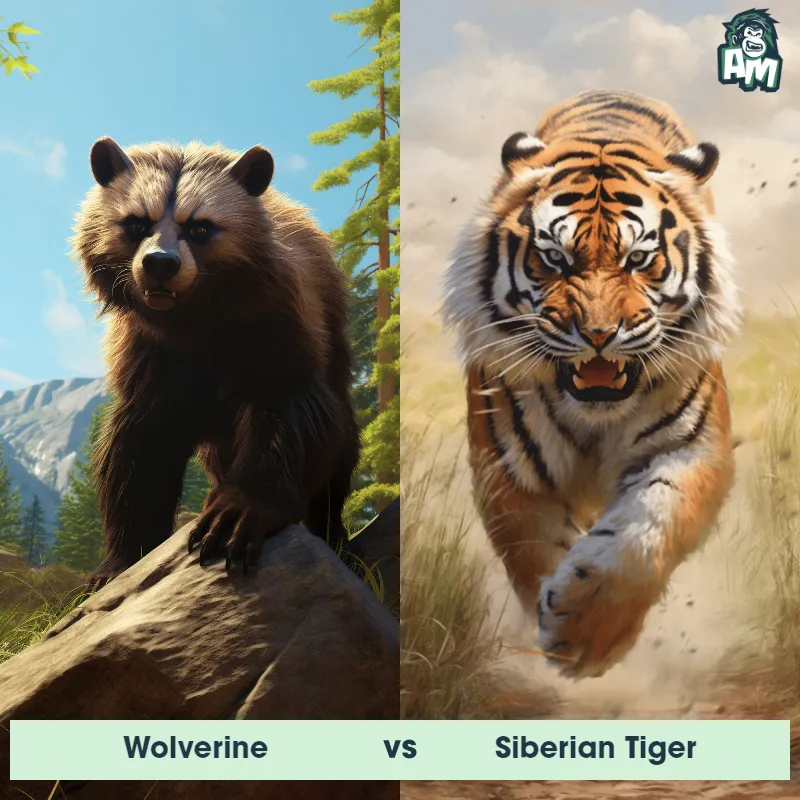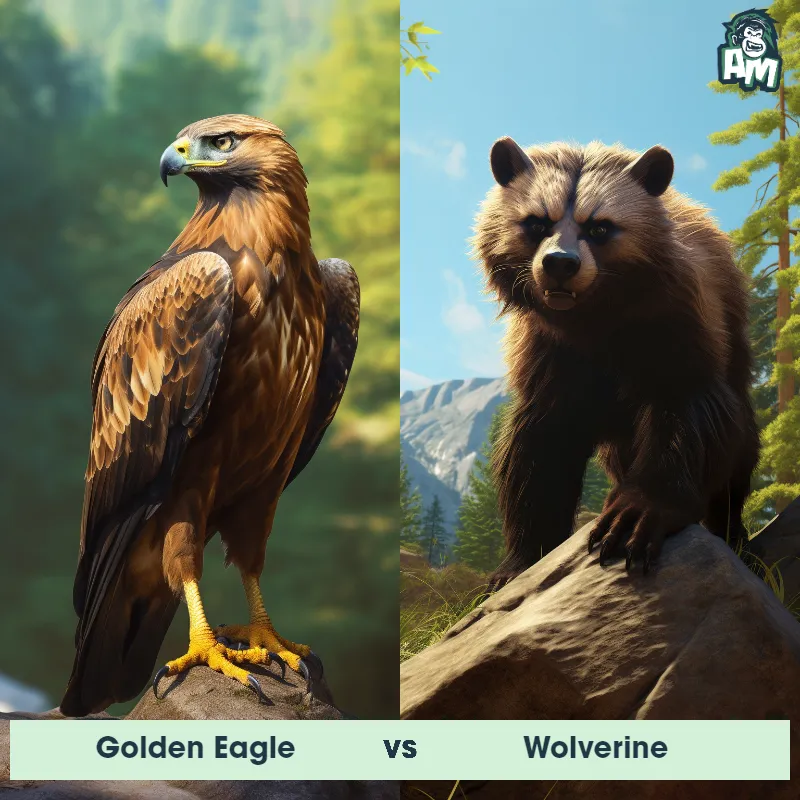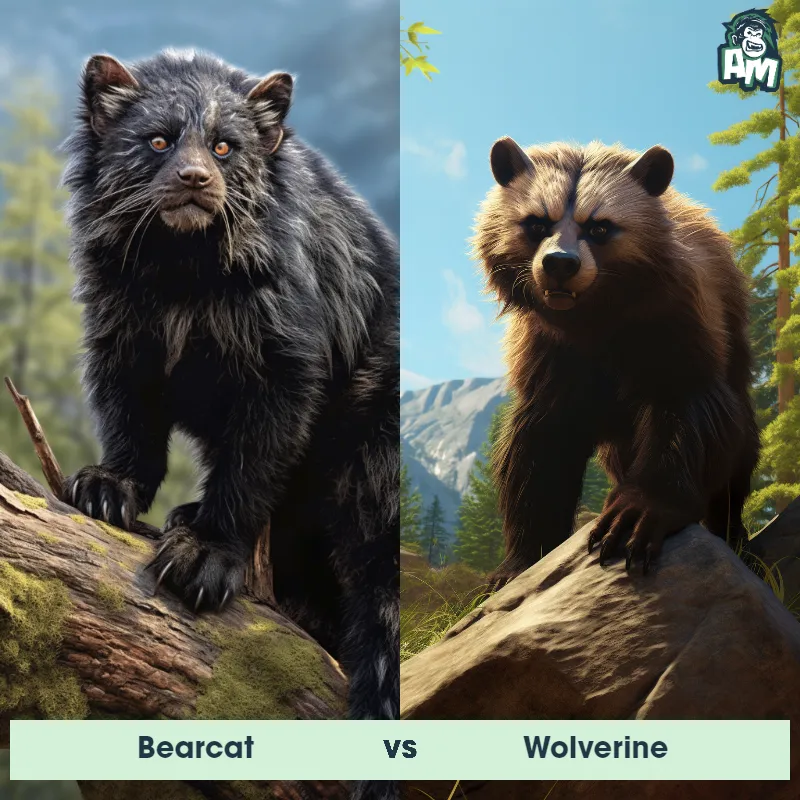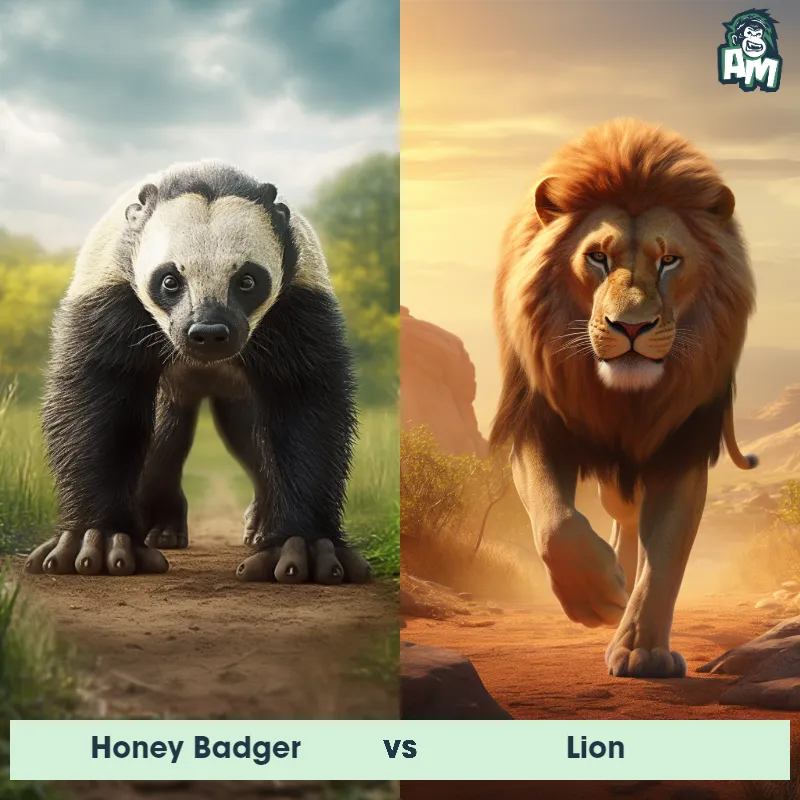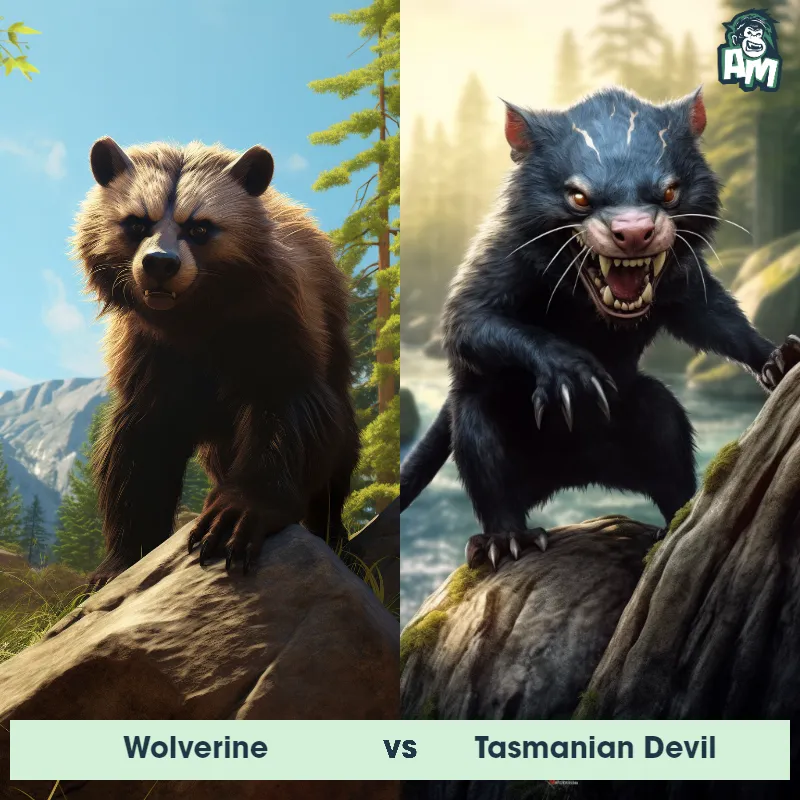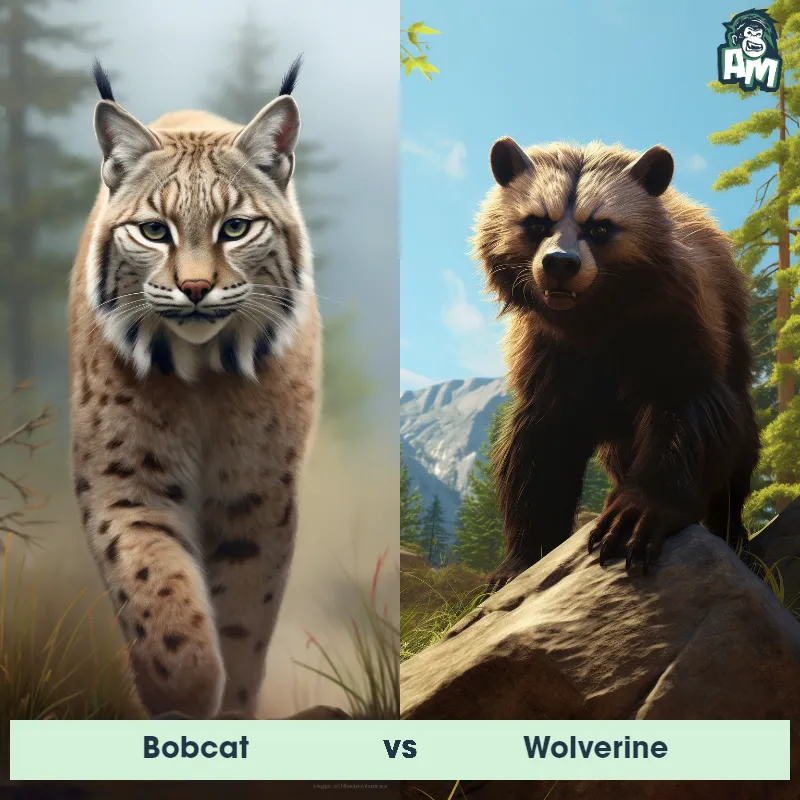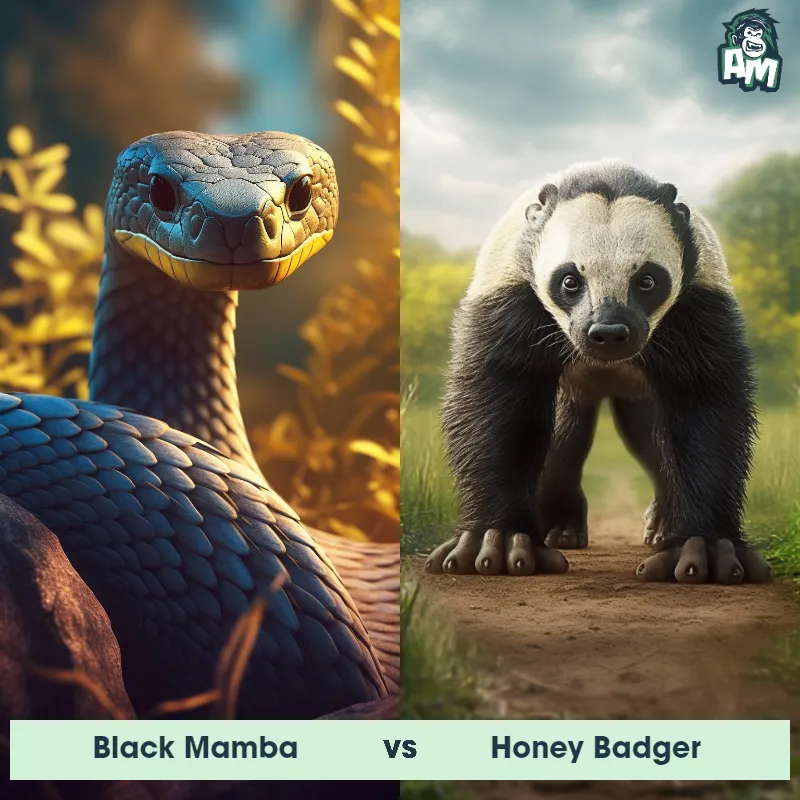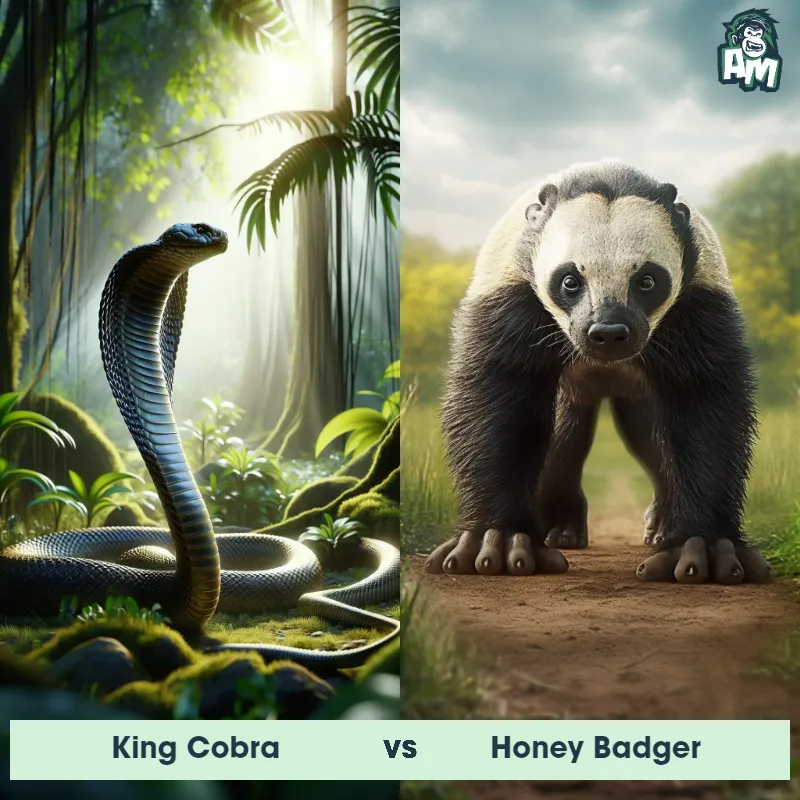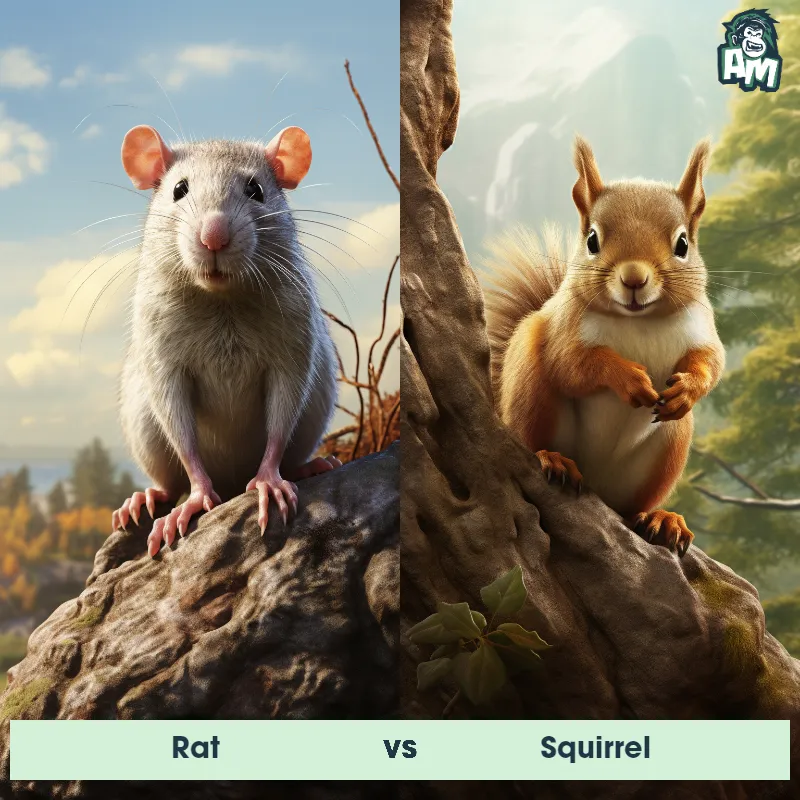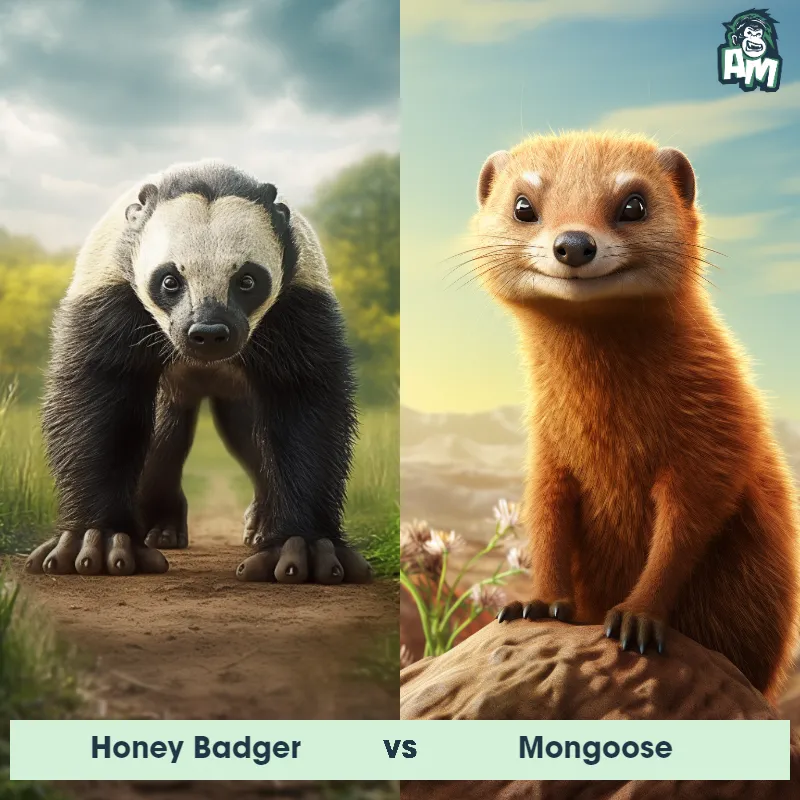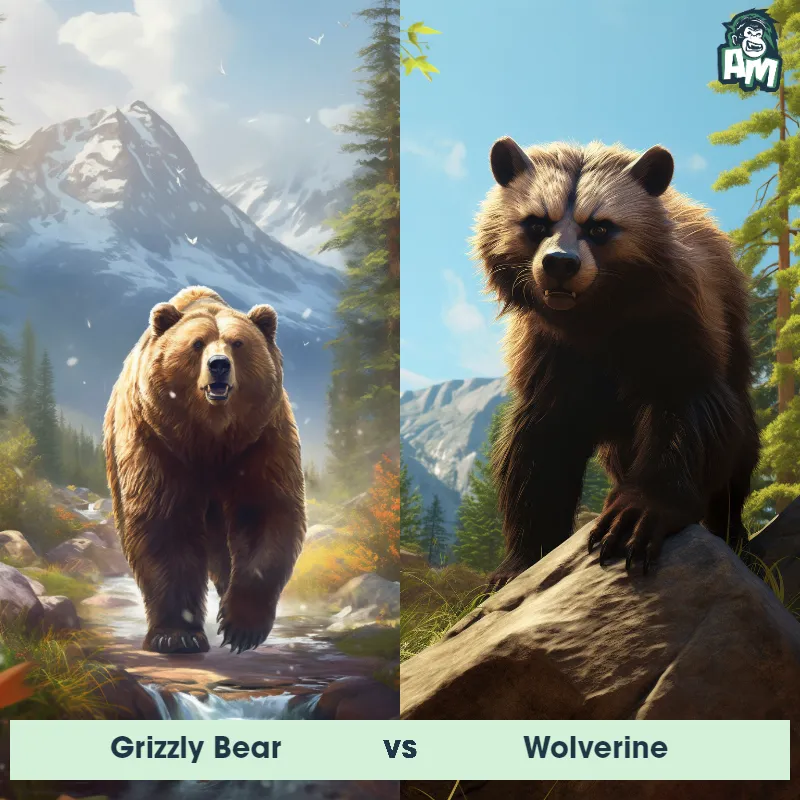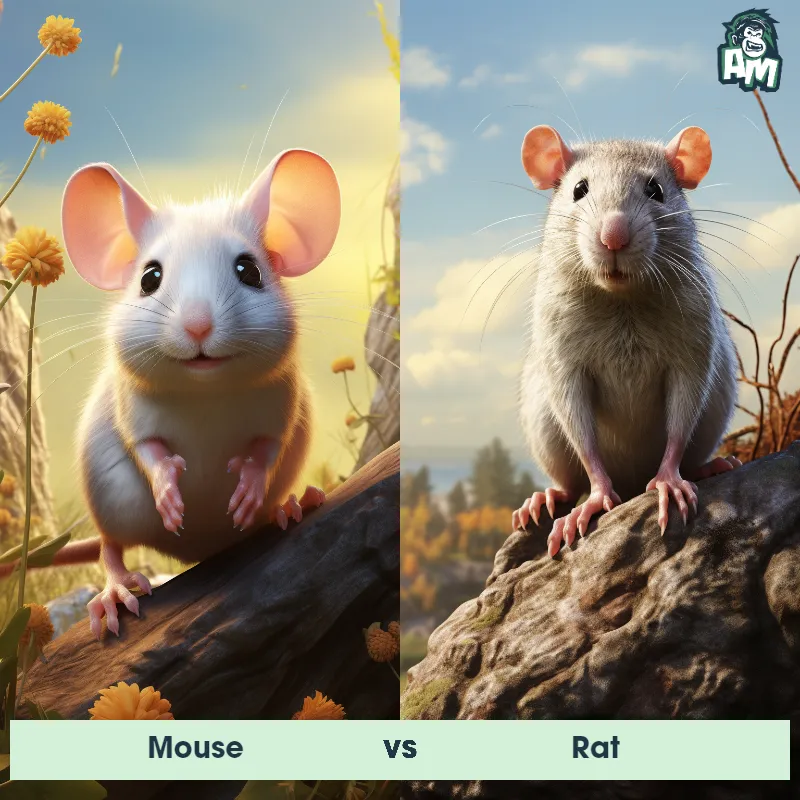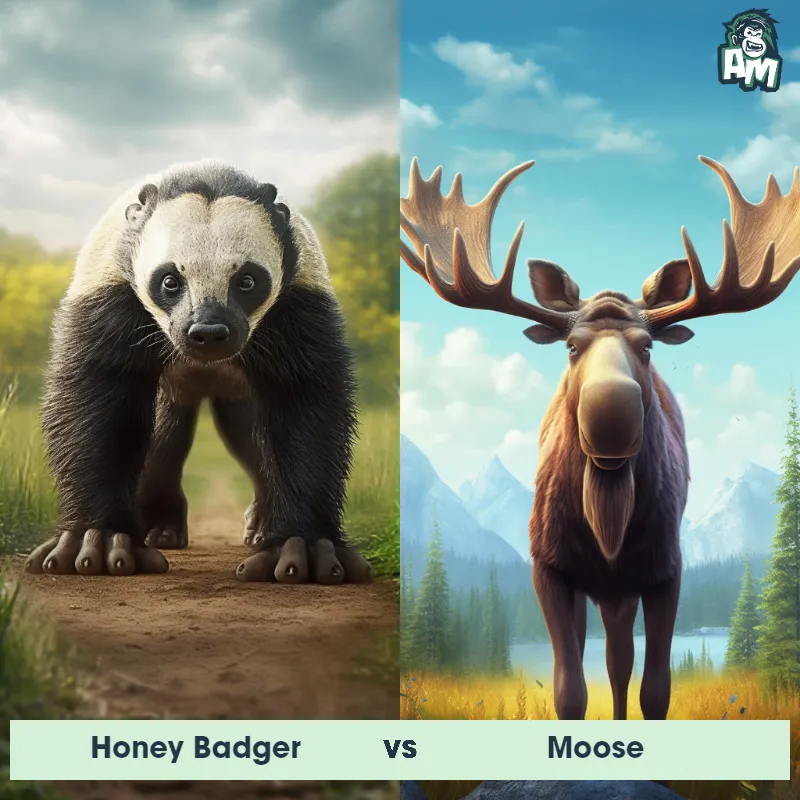Honey Badger vs RatSee Who Wins

Ladies and gentlemen, welcome to this thrilling animal matchup! We have an intense bout ahead, pitting the ferocious Honey Badger against the cunning Rat. Both animals are known for their tenacity and skill in their own ways. But only one will emerge victorious from this three-round fight. Let's see who will dominate the arena today!
Contender 1: Honey Badger
The Honey Badger, also known as the ratel, is a small carnivorous mammal found in Africa, Southwest Asia, and the Indian subcontinent. They have a stocky build, with a broad head, powerful jaws, and sharp claws. Their fur is thick and coarse, ranging in color from gray to black with a distinctive white stripe on their back. Honey Badgers are known for their fearless and aggressive nature, often taking on animals much larger than themselves, such as lions and hyenas. They are also known for their ability to withstand venomous snake bites and their love for honey, which they obtain by raiding beehives.
Fun Fact: Honey Badgers have been known to dig up and eat buried human corpses, earning them the nickname "the world's most fearless animal."
Contender 2: Rat
The Rat is a medium-sized, long-tailed rodent, renowned for its adaptability to various environments. Common species include the larger brown rat (also known as the Norway rat) and the smaller black rat. Rats typically range from 9 to 11 inches in body length, with a tail length that's about the same. They have robust bodies, pointed snouts, and small, hairless ears. Rats are omnivores, with a diet that can include grains, fruits, vegetables, meat, and eggs, and they have a strong instinct to gnaw, which keeps their constantly growing teeth in check.
Fun Fact: Rats have excellent memories, and once they learn a navigational route, they won't forget it.
Matchup Stats
| Honey Badger | Rat | |
|---|---|---|
| Size | 25-30 inches (63-76 cm) in length | 9 to 11 inches (22.86 to 27.94 cm) |
| Weight | 19-26 pounds (9-12 kg) | 0.77 to 1.1 lbs (350 to 500 grams) |
| Speed | Speed: 20 mph (32.19 km/hr) | 7mph (11km/h) |
| Key Strength | Powerful jaws and sharp claws | Strong instinct to gnaw |
| Biggest Weakness | Short legs and small size | Small size and lack of defensive mechanisms |
Current Votes
Honey Badger vs Rat
See Who Wins
View More Matches
Looking For More?
Similar Matches
Scientific Stats
| Honey Badger | Rat | |
|---|---|---|
| Scientific Name | Mellivora capensis | Rattus |
| Family | Mustelidae | Muridae |
| Habitat | Terrestrial | Various environments, including urban areas, forests, and fields |
| Geography | Africa, Southwest Asia, and the Indian subcontinent | Worldwide, except for Arctic and Antarctic regions |
| Diet | Carnivorous, eats small mammals, birds, reptiles, insects, and honey | Omnivorous (grains, fruits, vegetables, meat, eggs) |
| Lifespan | 24 years - 26 years | 1 year - 4 years |
Key Differences between Honey Badger and Rat
- Fur texture: The Honey Badger has coarse and thick fur, providing protection against various threats, whereas Rats typically have softer fur, often with a sleek or velvety texture.
- Coloration: Honey Badgers have a distinct coloring, with a predominantly black or dark brown body and a light-colored, almost white, back stripe. Rats, on the other hand, display a wide range of colors, including gray, brown, black, or even white, depending on the species.
- Facial features: The face of a Honey Badger is characterized by a distinctive white or grayish coloration around its cheeks and a black stripe running from the nose to the back of the head, whereas Rats generally have a more uniform coloration on their faces.
- Ears and tail: Honey Badgers have short and rounded ears, while Rats typically have prominent, large ears. Additionally, Honey Badgers have a short, stubby tail, while Rats possess a long, thin tail with varying lengths depending on the species.
- Body shape: Honey Badgers have a stocky and robust build with a broad head and strong neck, whereas Rats possess a slender and elongated body with a comparatively smaller head.
- Size: The Honey Badger is significantly larger than a Rat, measuring around 55-77 cm in length, while Rats are typically much smaller, ranging from 15-40 cm in length.




